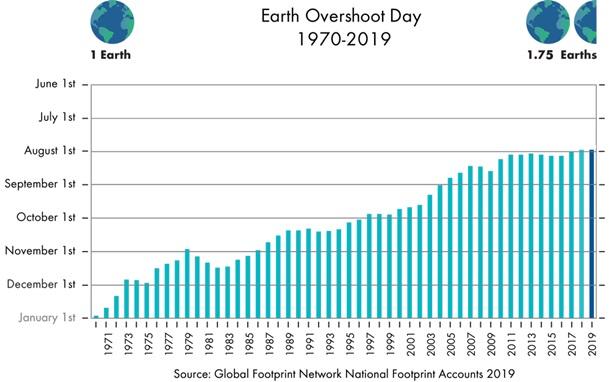
When ecology is against renewable resources
Environmental activist groups recently criticized the World Bank for a loan to build the Inga 3 dam on a river named Congo. This is another part of a giant hydroelectric project that is supposed to provide the largest African country with 90 percent of the electricity it needs (1).
1. Construction of the Inga-1 hydroelectric power station in the Congo, commissioned in 1971.
Ecologists say that it will go only to large and rich cities. Instead, they propose the construction of micro-installations based on solar panels. This is just one of the fronts of the world's ongoing struggle for energetic face of the earth.
The problem, which partially affects Poland, is the extension of the dominance of developed countries over developing countries to the field of new energy technologies.
It is not only about dominance in terms of more scientific and technological progress, but also about pressure on poorer countries to move away from certain types of energy that contribute the most to carbon dioxide emissions, towards low carbon energy. Sometimes paradoxes arise in the struggle of those who have part technological and part political face.
Here is the Breakthrough Institute in California, known for promoting clean energy methods, in the report "Our High Energy Planet" claims that the promotion of solar farms and other forms of renewable energy in Third World countries is neo-colonial and unethical, as it leads to the inhibition of the development of poorer countries in the name of implementing environmental requirements.
Third World: Low Tech Proposal
2. Gravity light
Low-carbon energy is the production of energy using technologies and processes that significantly reduce carbon emissions.
These include wind, solar and hydropower - based on the construction of a hydroelectric power plant, geothermal energy and installations using sea tides.
Nuclear power is considered low-carbon in general, but is controversial due to its use of non-renewable nuclear fuel.
Even fossil fuel combustion technologies can be considered low-carbon, provided they are combined with methods to reduce and/or capture CO2.
Third world countries are very often offered technologically "minimalist" energy solutions that actually produce clean energybut on a micro scale. Such, for example, is the design of the gravitational lighting device GravityLight (2), which was intended to illuminate remote areas of the third world.
The cost is from 30 to 45 PLN per piece. GravityLight hangs from the ceiling. A cord hangs from the device, on which a bag filled with nine kilograms of earth and stones is fixed. As it descends, the ballast rotates a cogwheel inside the GravityLight.
It converts low speed to high speed through a gearbox - enough to drive a small generator at 1500 to 2000 rpm. The generator generates electricity that lights the lamp. To keep the costs low, most parts of the device are made of plastic.
One lowering of the ballast bag is enough for half an hour of light. One more idea energetic and hygienic there is a solar toilet for third world countries. Sol-Char(3) model design has no support. The authors, Reinvent the Toilet, were assisted by Bill Gates himself and his foundation, run by his wife Melinda.
The aim of the project was to create a "waterless hygienic toilet that does not require a connection to the sewer" at a cost of less than 5 cents per day. In the prototype, feces are turned into fuel. The Sol-Char system heats them up to approximately 315°C. The source of the energy needed for this is the sun. The result of the process is a coarse-grained substance resembling charcoal, which can be used simply as fuel or fertilizer.
The creators of the design emphasize its sanitary qualities. It is estimated that 1,5 million children die worldwide each year due to the failure to properly manage human waste in a sanitary manner. It is no coincidence that the device premiered in New Delhi, India, where this problem, as in the rest of India, is particularly acute.
Atom may be more, but...
Meanwhile, NewScientist magazine quotes David Oakwell of the University of Sussex. During a recent conference in the UK, he gave as many as 300 people for the first time. households in Kenya equipped with solar panels (4).
4. Solar panel on the roof of a hut in Kenya.
Later, however, he admitted in an interview that the energy from this source is enough to ... charge the phone, turn on several household light bulbs and, possibly, turn on the radio, but the boiling water in the kettle remains inaccessible to users. . Of course, Kenyans would prefer to be connected to the regular electricity grid.
We are increasingly hearing that people who are already poorer than Europeans or Americans should not bear the brunt of climate change costs. It should be remembered that energy production technologies such as hydroelectric power or nuclear power are also low carbon. However, environmental organizations and activists do not like these methods and protest against reactors and dams in many countries.
Of course, not only activists, but also cold-blooded analysts have doubts about the atom and the economic sense of creating large hydroelectric facilities. Bent Flivbjerg of the University of Oxford recently published a detailed analysis of 234 hydropower projects between 1934 and 2007.
It shows that almost all investments exceeded the planned costs twice, were put into operation years after the deadline and are not economically balanced, not recouping construction costs when reaching full efficiency. In addition, there is a certain pattern - the larger the project, the more financial "troubles".
However, the main problem in the energy sector is waste and the issue of their safe disposal and storage. And although accidents at nuclear power plants happen quite rarely, the example of the Japanese Fukushima shows how difficult it is to deal with what arises from such an accident, what flows out of the reactors and then remains in place or in the area, once the main alarms are gone. are canceled ...
